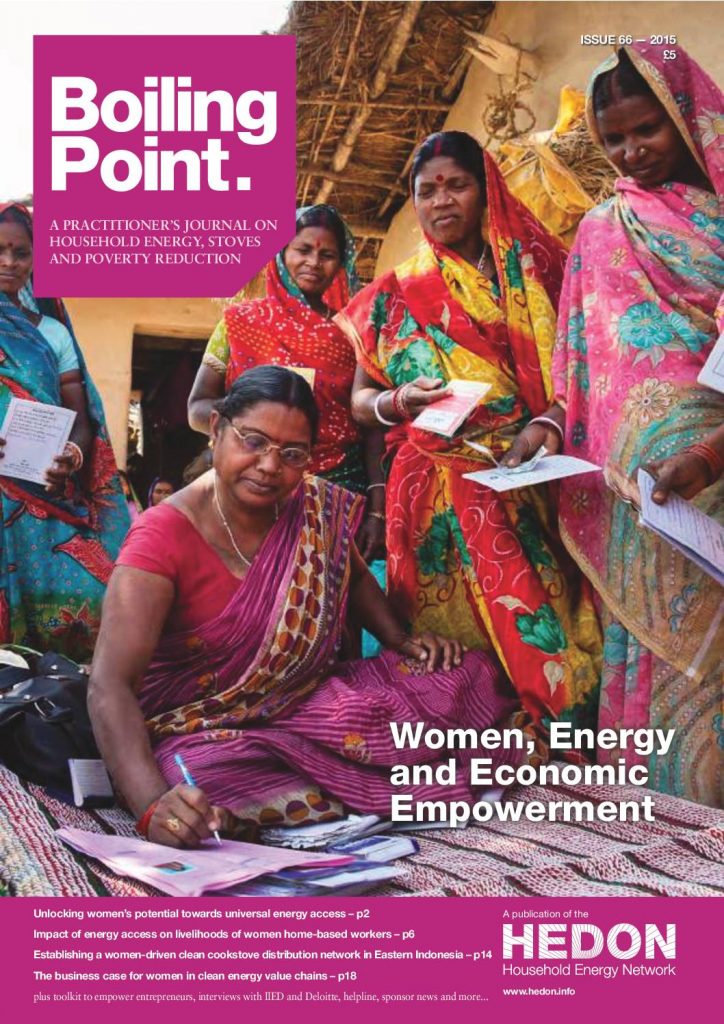In the last few years, gender issues have increasingly been recognised as critical to energy access initiatives. Underscoring the importance of access to energy, or the lack thereof, and its
impacts on women and girls, the first two years of the Decade of Sustainable Energy for All (SE4All) are dedicated to a global campaign on energy, women, children and health.
This issue’s theme on Women, Energy and Economic Empowerment shines light on the role of women in reaching energy products and services to the poor and ‘difficult to reach’ consumers. The issue also explores the impact that women- led micro and small enterprises (MSEs) selling energy services can have, with respect to household spending, poverty, gender equality and local markets and economies. Because of their role as household energy managers and through their formal and informal networks, women are in a unique position to connect with their peers, increase awareness and deliver energy products and services. As users, they know what features energy products should have. At the same time, when women who are home-based micro and small scale business owners or workers get energy access, they stand to benefit tremendously through increased productivity and lowered costs, resulting in increased incomes benefitting families, societies and local markets. ENERGIA taps into this huge potential of women-led MSEs in scaling up energy access with its recently launched Women’s Economic Empowerment Programme (WE). Read more on the background and WE programme in the article ‘Unlocking women’s potential towards universal energy access’.
The three theme articles that follow each focus on different aspects of women’s economic empowerment in relation to energy and the energy sector. While the Self-Employed Women’s
Association (SEWA) article looks at the benefits of energy access on the lives and livelihoods of informal women workers in India (95% of the female workforce), Kopernik and Solar Sister focus on women as suppliers of energy products and services in remote Indonesia and Tanzania, Nigeria and Uganda respectively. Both social enterprises work with different business models—which are explained in the articles—but the ultimate goal is the same: scaling up energy delivery in remote and hard to reach areas, and empowering women as entrepreneurs and businesswomen.
This issue of Boiling Point also includes findings from a recent study that explores how energy access programmes can be levered for women’s economic empowerment. Kathleen O’Dell, Senior Manager at Deloitte Consulting LLP, elaborates on this in her interview on the study, ‘Women, energy and economic empowerment: Applying a gender lens to amplify the impact of energy access.’ Another viewpoint article interviews Sarah Best, Senior Researcher at the International Institute for Environment and Development, who builds on this premise and emphasises the importance of activities and supportive services needed to stimulate productive activities when working with women. These two interviews include pointers for integrating gender in energy policies, projects and programmes.
We hope you enjoy reading this issue of Boiling Point, which was pulled together with great enthusiasm, and hope it will help you derive insights and ideas that benefit your own work as practitioners in the energy sector.

Follow us on: